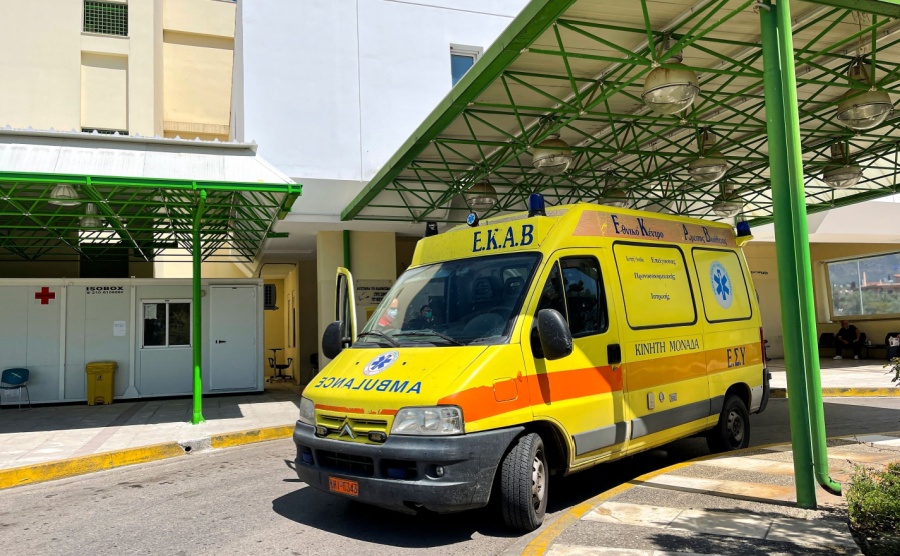If you move to Greece, what kind of healthcare can you expect? The good news is that huge levels of new investment are going into Greek hospitals and healthcare. See where it’s being spent.
As part of its post-Covid-19 economy-boosting Recovery Fund, the European Union has given Greece over €400 million to spend on improve hospitals and health centres throughout the country. The first contracts for the ambitious hospital renovation and reconstruction initiative were signed last summer and will be spent not just on infrastructure upgrades, but also investments in more staff and preventive screening programmes.
During a recent visit to the Metaxa General Cancer Hospital of Piraeus, prime minister Kyriakos Mitsotakis said, “Step by step, we are building the new National Health System, which we have envisioned and which all Greeks deserve. Today, in this flagship anticancer hospital, we see a small aspect of a much larger construction project, which extends throughout the country”.
Find homes in Greece via our property portal.
Greek hospitals
The renovation project at Metaxas Hospital includes the reconstruction or replacement of some of the flooring, wards, bathrooms, kitchens, lighting, fire safety, nurse call systems and electrical installations.
Public healthcare in Greece includes over 270 hospitals, a third ofn which are in the Attica region, as here you have the highly populated city of Athens. The largest general hospital in Greece is the Evangelismos General Hospital of Athens with 1,100 beds.

Greek hospital (Pit Stock/Shutterstock)
Hospitals in Greece are split into two categories; general and specialised. General hospitals have multiple departments covering most medical situations. While a specialised hospital focuses completely on one speciality.
You may wonder what happens if you are taken ill on Greece’s 200-plus inhabited islands. Hospitals on islands do vary in their facilities and size, but always based on local need. Greek doctors and nurses are generally viewed as being efficient and caring, but services are nevertheless stretched, with long waiting times. Holiday season brings extra stress to island hospitals, with intoxicated tourists getting more than their fair share of alcohol-related injuries. Patients who require more specialist care than an island hospital can provide are transferred to Athens or Thessaloniki. Private air ambulances may be used for urgent cases.
Hospitals on Crete
The island with the best healthcare coverage is thought to be Crete. As well as the University General Hospital of Heraklion, there are general hospitals in Chania, Agios Nikolaos, Rethymnon, and Lerapetra. There are also several private hospitals and many medical centres throughout the island.
The appeal of private healthcare in Greece
The private healthcare system in Greece is extensive, and popular with expats. Conditions are known to be much better in private hospitals than in public, with newer equipment and shorter waiting times. While treatment can be expensive, expats often prefer to go to a private hospital that is more likely to have English-speaking doctors and nurses.
Doctors and nurses
There are a good number of doctors in Greece (4.9 practising physicians per 1,000 population). However, there is a shortage of nurses 3.8 per 1,000. Therefore, if the patient has a care giver at home, they will often sit with the patient in hospital, to help with care there too. Fortunately, recruitment of more nurses is one of the priorities of the current government. These young recruits are also more likely to speak English than the older staff.
Care at home
As is common in many Mediterranean countries, Greek society often assumes that female family members will take care of the elderly or sick. They even develop basic nursing skills, such as giving injections. Families tend to live close together, offering support, company and love. Which can be very beneficial to everyone’s mental health, despite putting extra work on the women.
Family care in hospital
When a family member goes into hospital, it is common for a relative to stay at their bedside for many hours. As hospital nurses have a lot of patients to take care of, these carers feel obliged to help out when they can. They will do things for the patient such as change their sleeping position, wash them and clean their teeth, change their clothes, collect food, and even make the bed. As well as helping to take some pressure off the nurses, Greek families consider it important to be with their sick relative to offer psychological support.
Pharmacies and Medical centres
If you have a small injury or are taken ill in a rural area or village, your first stop is likely to be a pharmacy. Some medicines that are common outside the EU may be restricted in Greece, therefore you should discuss with your doctor possible alternatives, if these are in your regular prescription.
The pharmacist is qualified to deal with most minor ailments. Pharmacies are generally open from 8am to 1pm, and again at 5pm to 8.30pm. In addition, there are health centres which are like small hospitals, with doctors and medical equipment.
Is healthcare free in Greece?
At the start of the 1980s, Greece established the Greek Healthcare System (GHS) based on the UK National Health Service. The GHS provides mostly free health care for all citizens, known as ISA. Patients only pay a small fee for things like medicines or injections prescribed by their doctor. However, they also have to pay a contribution towards visits to a specialist prescribed by their doctor, or if they request a doctor home visit.
Expats who are working, looking for work, or receive a pension must contribute to the IKA, which is social security in Greece, and therefore will receive free or subsidized healthcare. Expats will receive a social security card known as AMKA. If an expat goes to an IKA-approved practitioner, healthcare is usually free.
Healthcare for visitors
If you are spending less than 90 days at your holiday home in Greece, and are a UK citizen, you can apply for the GHIC card. This is the UK Global Health Insurance Card which lets you get necessary state healthcare in EU countries, on the same basis as a resident of that country. You can apply for free through the official NHS website.
EHIC card holders are expected to present their European Health Insurance Card (EHIC) and their identification card (id) or passport at the hospital or health centre. In an emergency you can call 112 or 116 for an ambulance.
Travel Insurance
The UK GHIC is not a replacement for travel insurance. You are advised to have private travel and medical insurance for the duration of your trip. Medication can be brought into Greece if you hold a letter from your doctor stating the quantity required during your stay as well as a copy of your prescription.
Health insurance
Public and private health insurance is available in Greece. The majority of the citizens have public insurance, which entitles them to visit hospitals, private clinics and doctors. Registration with such insurance requires part-time or full-time employment.
You will need health insurance cover while you are going through the process of applying for residency. For details about the healthcare cover required for residency applications, contact local authorities in Greece. When taking out a health insurance policy, make sure it covers all possible scenarios. Also, check if they will pay out directly to the healthcare provider, or if you have to pay and then be reimbursed later.
Healthcare when retiring to Greece
If you are entitled to medical treatment in the country that pays your pension, you may be able to request an S1 form from your social security service in the country you are moving from. When moving from the UK to Greece, you can find more information on how to apply for an S1 on the NHS website.
A healthy life in Greece
If life expectancy figures are anything to go by, it would seem living in Greece could lead to a healthy long life. In 2024, average life expectancy for people living in Greece is 82 (women 84, men 79). This is similar to the figures in the UK and Germany (source: worldometers) but much better than the United States’ average of less than 80.

Enjoy a long life in Ikaria
Greece also has some “blue zones”, where an above average nyumber of people live to a great age. On the eastern Aegean island of Ikaria more than 30% live into their 90s and many reach 100. Even their quality of life extends into old age too, generally free from chronic illness and dementia.
Greek lifestyle
Genes may be one reason why people on Ikaria live so long, but Ikarians also have a lifestyle similar to those in other blue zones around the world. They live a largely outdoor lifestyle among fresh air and nature. They eat a predominantly plant-based diet rich in wild herbs, vegetables, pulses, olive oil and natural wine. Plus, they have a laid-back attitude, spending time with family and friends in a tight-knit community.
In villages and rural areas across Greece you will see other people living this healthy lifestyle. In my experience, the older generation in Greece seem to be happy, healthy and friendly. They appreciate the little things, like the taste of fruit straight from the tree, a drink with friends, or the scent of fresh herbs. If we follow their example, maybe we can also keep the doctor at bay.












